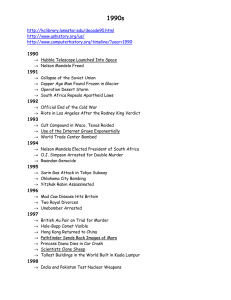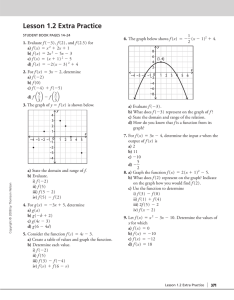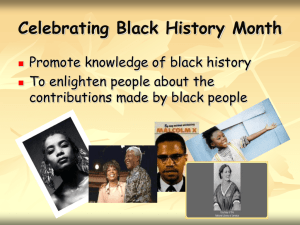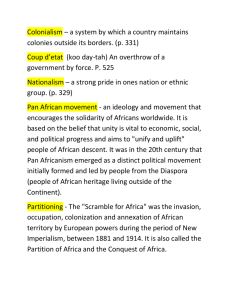OLLSCOIL na hÉIREANN NATIONAL UNIVERSITY OF IRELAND
advertisement
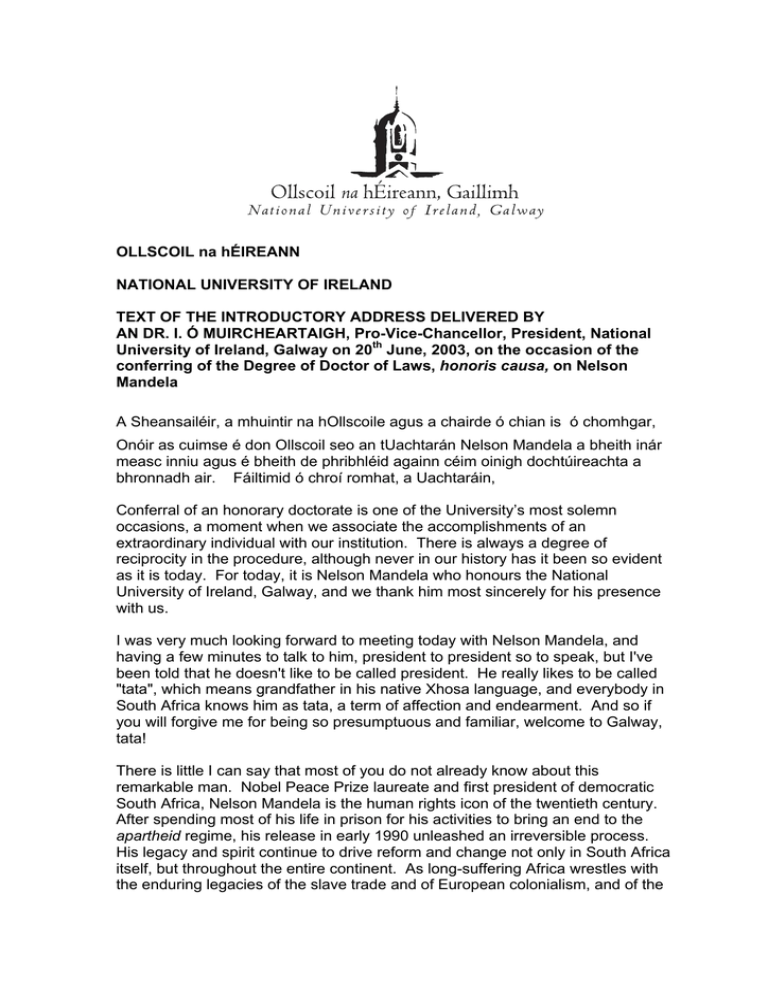
OLLSCOIL na hÉIREANN NATIONAL UNIVERSITY OF IRELAND TEXT OF THE INTRODUCTORY ADDRESS DELIVERED BY AN DR. I. Ó MUIRCHEARTAIGH, Pro-Vice-Chancellor, President, National University of Ireland, Galway on 20th June, 2003, on the occasion of the conferring of the Degree of Doctor of Laws, honoris causa, on Nelson Mandela A Sheansailéir, a mhuintir na hOllscoile agus a chairde ó chian is ó chomhgar, Onóir as cuimse é don Ollscoil seo an tUachtarán Nelson Mandela a bheith inár measc inniu agus é bheith de phribhléid againn céim oinigh dochtúireachta a bhronnadh air. Fáiltimid ó chroí romhat, a Uachtaráin, Conferral of an honorary doctorate is one of the University’s most solemn occasions, a moment when we associate the accomplishments of an extraordinary individual with our institution. There is always a degree of reciprocity in the procedure, although never in our history has it been so evident as it is today. For today, it is Nelson Mandela who honours the National University of Ireland, Galway, and we thank him most sincerely for his presence with us. I was very much looking forward to meeting today with Nelson Mandela, and having a few minutes to talk to him, president to president so to speak, but I've been told that he doesn't like to be called president. He really likes to be called "tata", which means grandfather in his native Xhosa language, and everybody in South Africa knows him as tata, a term of affection and endearment. And so if you will forgive me for being so presumptuous and familiar, welcome to Galway, tata! There is little I can say that most of you do not already know about this remarkable man. Nobel Peace Prize laureate and first president of democratic South Africa, Nelson Mandela is the human rights icon of the twentieth century. After spending most of his life in prison for his activities to bring an end to the apartheid regime, his release in early 1990 unleashed an irreversible process. His legacy and spirit continue to drive reform and change not only in South Africa itself, but throughout the entire continent. As long-suffering Africa wrestles with the enduring legacies of the slave trade and of European colonialism, and of the miseries of neo-liberalism and globalisation, Nelson Mandela provides a ray of hope and optimism in what is otherwise a rather bleak landscape. His visit here also gives us the opportunity to affirm our commitment and solidarity with the people of Africa. In honouring Nelson Mandela here today we salute not just Mr. Mandela, not just the leaders of his and other liberation movements, but all those who have been part of this epic and unending struggle for liberty and liberation. We salute also the many of our own fellow-countrymen - educators, engineers, doctors, missionaries and indeed present day Irish aid workers (some of whom are represented here today), who have given of their best years to assist the destitute and the oppressed. I personally remember an Irish priest, Father James Lynch, who was from my father’s village in Co. Kerry, and in whose school another great African, President Nyrere of Tanzania, sheltered as an assistant teacher, while he led his country to independence from colonial rule. Nelson Mandela is perhaps the world’s most celebrated political prisoner of all time. He must feel welcome in a country that has known its share of political prisoners. When the writer Frank O’Connor was imprisoned here in the early 1920s, he said that for an Irishman to say ‘“He and I were in gaol together” was rather like an Englishman saying “He and I were in Eton together”, but considerably more classy. And it doesn’t get any classier than Robben Island. Nelson Mandela was sent to Robben Island in 1963, the year in which, as it happens, the General Assembly adopted the Declaration on the Elimination of All Forms of Racial Discrimination. This declaration was followed two years later by the International Convention on the same subject, now one of the most widelyratified human rights instruments, and one of the premier documents in international law. Prohibition of racial discrimination sits very much at the core of modern human rights. It weaves together historical strands, such as revulsion at colonialism and the slave trade, as well as some of the more egregious modern manifestations: apartheid, the Holocaust, and segregation in the deep south of the United States. The visit to Ireland of Nelson Mandela, and the ongoing engagement of his comrades in arms – for example Cyril Ramaphosa – who is with us this evening, and whom we warmly welcome in our midst, and Kadar Asmal, who will be with us next week when we confer on him also an honorary degree - continue to assist our country as it struggles with the demons of racism. Under Nelson Mandela’s guidance, South Africa is striving to create an egalitarian, pluralist society, a vision upon which he has steadfastly insisted since the earliest days of his political life. Post-apartheid South Africa, under Nelson Mandela’s stewardship, has explored innovative methods of dealing with past violations of human rights. The Truth and Reconciliation Commission has insisted upon accountability, as well as reparation, but without an inordinate focus on the harshness of criminal punishment. The Constitutional Court that Mandela appointed in early 1995, in one of its first acts, abolished the death penalty. Nelson Mandela reminds us constantly of the significance of personal leadership. Without his presence, it is easy to imagine South Africa plunged into turmoil. Many countries are in almost constant crisis because they lack men and women of his stature, integrity and judgment. He stepped down as president of South Africa, but not without leaving a dynamic, competent team in place to ensure the legacy of the work that he and his colleagues, like the late Walter Sisulu, had initiated, would continue. Nelson Mandela has since become the world’s quintessential elder statesman. His influence is felt around the world, as he continues to weigh in on controversial issues, be it condemnation of the aggression against Iraq, or the urgency of measures to deal with the modern HIV-AIDS plague in his own continent. Dr Mandela, your name will henceforth be forever linked with our university. We want you to know that this is much more than mere symbolism, and that your visit helps cement a genuine commitment and engagement of our institution here in Galway to the ideas and values that have shaped your life. As the early years of the new century unfold, the need for such inspiration as you have given is if anything greater than ever before. Your visit to Galway, Ireland today gives us a renewed inspiration to tackle the iniquities that are still, unfortunately, all too pervasive in our world. It serves to highlight how individual resolve and adherence to principle, combined with tenacity and courage, can change the course of history. For tending and propagating the flame of liberty, humanity is everywhere in your debt. In conclusion, I would like to quote the last paragraph of your wonderful, aweinspiring book, The Long Walk to Freedom, because it sums up, in my view, so beautifully and yet so modestly, the story of your life to date. “I have walked that long walk to freedom. I have tried not to falter; I have made missteps along the way. But I have discovered the secret that after climbing a great hill, one only finds that there are many more hills to climb. I have taken a moment here to rest, to steal a view of the glorious vista that surrounds me, to look back on the distance I have come. But I can only rest for a moment, for with freedom come responsibilities, and I dare not linger, for my long walk is not yet ended.” Tata, we are so pleased and so honoured to be now, and forever more, a part, however modest, of that long walk. We have a greeting in Irish, our native language, which says “go n-éirí an bóthar leat” which roughly translated means may the road rise with you. There is no doubt but that the road of your long walk to freedom has risen, not only with you, but for millions of others of the oppressed and dispossessed of the world we live in. Fáiltimid arís inniu, mar chéimí dár nOllscoil, roimh duine de mhór laochra na linne seo, an tUasal Nelson Mandela. PRAEHONORABILIS CANCELLARIE, TOTAQUE UNIVERSITAS: Prasesento vobis, hunc meum filium, quem scio tam moribus quam doctrina habilem et idoneum esse qui admittatur, honoris causa, ad gradum Doctoratus in utroque Jure, tam Civili quam canonico, idque tibi fide mea testur ac spondeo totique Academiae.

